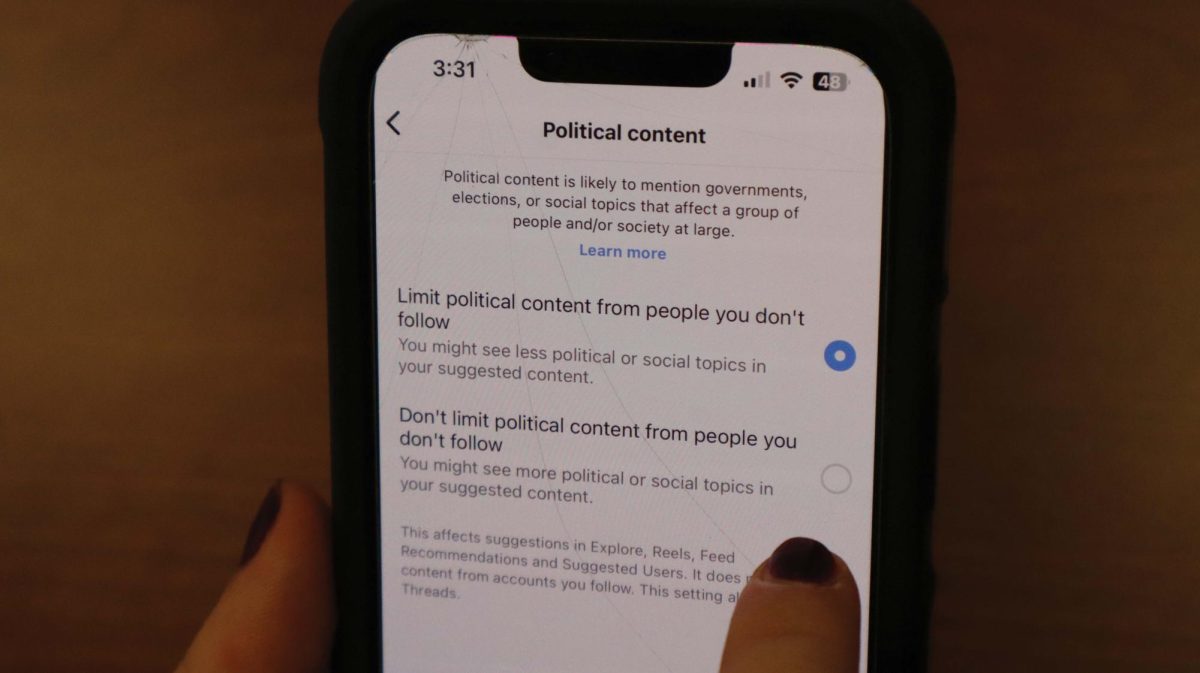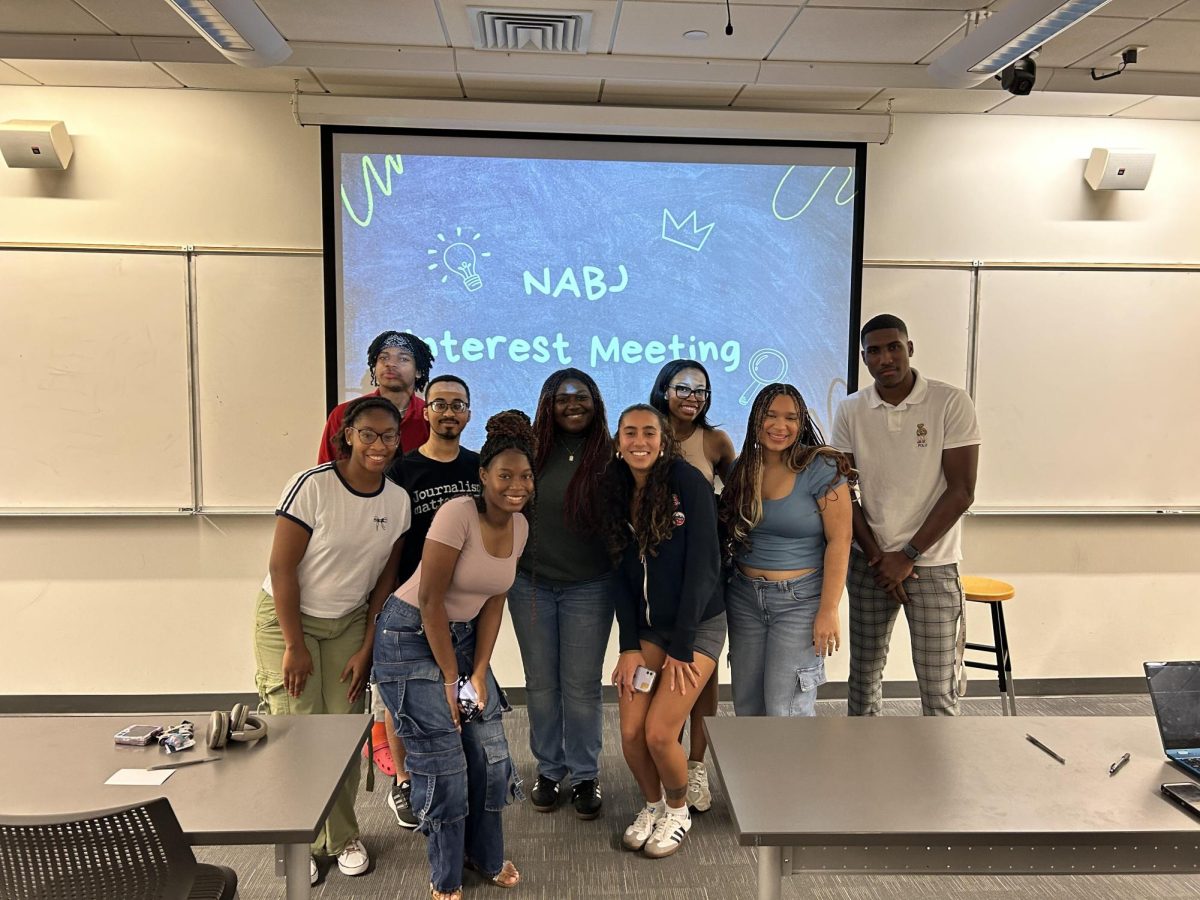If you are an avid user of Instagram or Facebook, you may have noticed a substantial decrease in a specific type of content in your social media feeds these past few weeks.
A new policy has been put in place across all Meta social media websites that adds a setting to reduce the amount of political content users may see, according to Meta Platforms.
The policy change was announced on Feb. 9 and uses artificial intelligence software to help determine what is and is not political content, with Meta citing political issues “potentially related to things like laws, elections, or social topics,” according to a release on Instagram and Threads.
The new policy does not stop users from seeing political content from profiles or groups they already follow. While the setting is on, however, they will not see content in recommended feeds that fall within Meta’s definition of what is considered political.
While the setting is optional, there are those who hold concerns for people who are unaware of the change.
To political science sophomore Maritsa Harris, the new setting brings potential dangers.
“I think that it’s going to hinder some Gen Z voters from getting information,” Harris said. “Less and less people are going to see what’s going on in the world.”
Harris pointed out that many people nowadays are using social media for news. According to a 2021 poll by Gallup, 45% of people in the age range of 15 to 24 years old use social media as their primary news source. In the same poll, 17% of those aged 40 and up do the same. Harris is worried that, with this setting, people will end up in large echo chambers of political thought.
“They’re never going to see the other side, they’re never going to see right in the middle,” Harris said. “They’re just going to see what they want to see.”
The concern for potential echo chambers is not limited to students, either. Roger White, chair of the political science department, feels that by only reaffirming your worldview, you are only feeding into what you already know and agree with.
Quoting his own political science professor, Lyle Downing, White said, “[Other ideas] may be evil and they may be crazy, or they may just sound that way, because you haven’t thought about it yet.”
White used Jacob Chansley, known as the “QAnon Shaman,” as an example of the dangers of echo chambers. QAnon is an alt-right conspiracy group based on the idea of a government insider leaking information to promote the idea of a “deep state.” According to White, Chansley first slid into the pipeline when looking for health foods. From there, he fell down the rabbit hole until he landed “into this world of his own.”
Thankfully for Harris and White, the feature is optional and can be turned off within the settings of Meta’s apps. However, for other users, they may be completely unaware of the new change. According to Harris, she found out via TikTok.
“TikTok gives Gen Z a voice to say whatever, whether we like it or not,” Harris said. “If TikTok were to get banned, and we moved to Instagram, that’s just a way for Meta to control what Gen Z and what other users see on the app.”
Harris refers to the Protecting Americans from Foreign Adversary Controlled Applications Act, which was signed into law by Biden on April 24 as a part of a bill that provides emergency funding to Ukraine, Israel, and Taiwan, according to the Congressional website.
The law bans the hosting of “foreign adversary controlled applications” within the U.S., with exception to this being if a “qualified divestiture” is made — selling TikTok.
When it comes to Meta, though, Harris is advocating for people to switch this feature off.
“I don’t want to ever censor someone on what their opinion is, whether I agree with it or not,” Harris said. “It’s not my job to dictate whether it’s good or bad.”
White goes one step further and recommends others to actively look for multiple sources for news. For instance, he will look at different news sites in order to see how they will cover the same event.
“I can balance out my prejudices here, and somewhere in between or underneath these prejudices is the truth, right?” White said. “I won’t get it entirely but at least I’ll do my best to get the most sober reflection of reality that I can.”


















